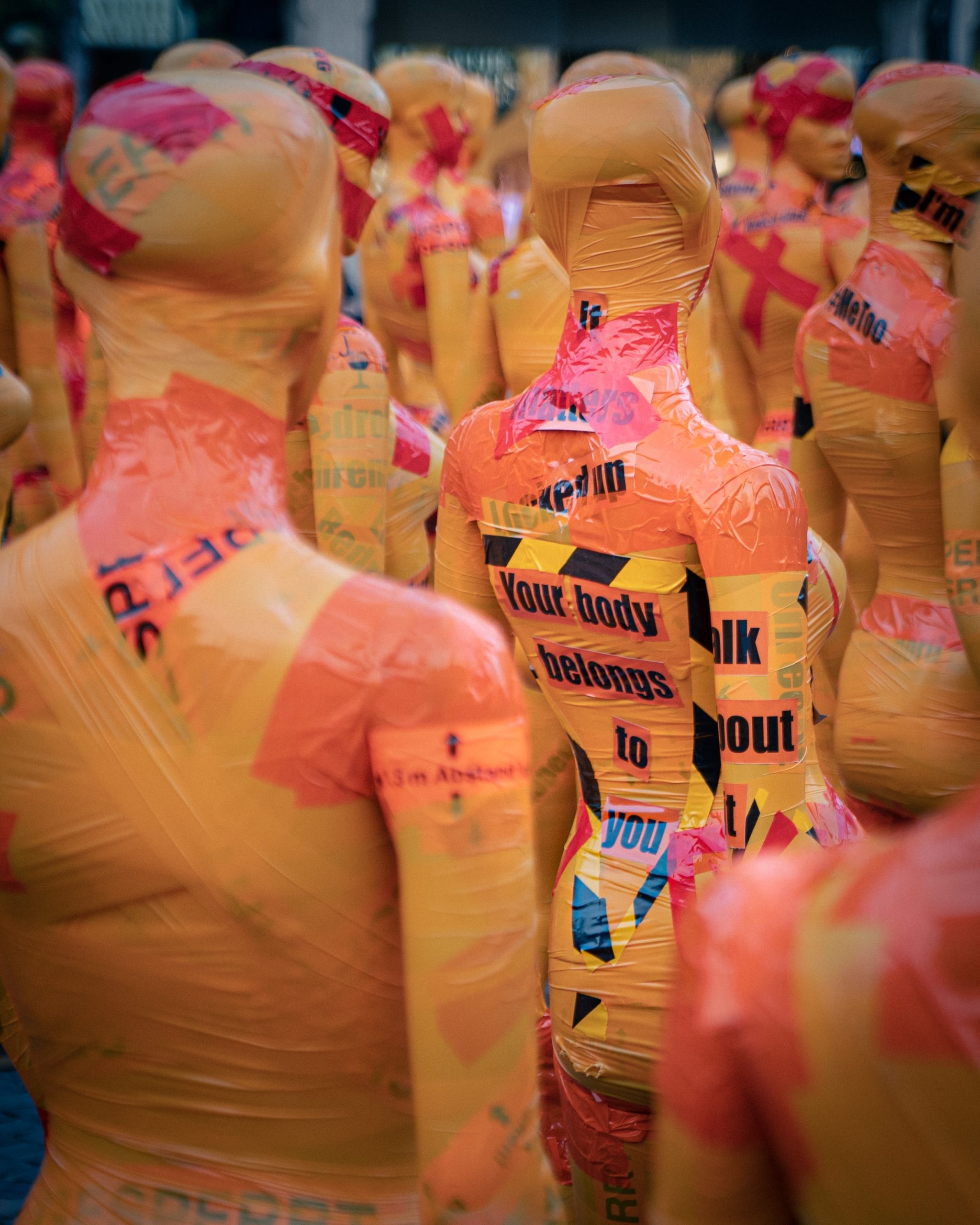[Written by Ioulitta Triantafyllou (she/her)]
[Photo by Mika Baumeister on Unsplash]
[Content Warning: Discussions of sexual assault and excessive/gratuitous violence]
Society, as we have come to know it, revolves around a dependency on the accumulation of profit. State capitalism influences every aspect of how our society operates, particularly harming minority groups who are consequently treated as dispensable, despite being of utmost importance to the functionality of any society. Womxn are one of these groups. Feminism began as a movement It’s important to understand that feminism must not only challenge gender but also race, class, and all forms of discrimination if it is bound for reform; it demands a radical tactic in combating social injustices. Feminism is just awakening to truly approaching this issue from an intersectional point of view.
Everything has a price tag and womxn’s bodies are not exempt from that, as the system depends on their cheap labour to satisfy the standards of the economy. More than that, their bodies are limited and subverted to maintain a linear process of production. Keeping almost half of the population under these constraints, is not only cost-effective but a way to supervise womxn; to exhaust their potential. However, humans are not machines; the more they are deprived of their freedom, whether physical or mental, the more their need for independence will grow. Intersectional feminism is the outcome of years of oppressive mandates that have defined womxn’s realities, from the way they dress and who they love, to issues of consent and concepts as basic as living with dignity.
State-capitalism targets our society’s integrity while constructing new ways to operate it. It initiates a war against our humanity, promoting individualism and disconnecting us from one another. Often, this war is literal, with money-hungry multinational corporations imposing their power through waging wars on third-world countries for maximum gain. These imperialistic strategies are ever-flourishing under our capitalist system, a system unconcerned for the wellbeing of people. It reinforces the illusion of choice: work or starve, become one with this ‘irrational rationality’ or do not become at all. Nonetheless, the inclusion to this system was presented as alluring to all womxn who entered the workforce in the 60s and 70s. Not only that, this was seen as a form of resistance, of emancipation from the confinements of housework and child rearing, neglecting the fact that their participation in this system, as liberating as it was, didn’t change the reality of it. In contrast, it fed this endless machine of mass production that utilizes human bodies, womxn’s bodies, as a stepping stone to inflate material value. My point is that womxn, and all workers for that matter, should be working humanely and be appropriately compensated for their labour.
The fast-fashion industry is a prime example of how womxn are forced to comply with the industry’s etiquette, if they want to support themselves and their families. These factories are always hazardous and unsafe constructions, where these womxn work over 14 hours a day. They have to endure physical and mental exhaustion for less than minimum wage and are often harassed by their supervisors. Is this the feminism that we envisioned; the equality that we demanded? What about our fellow womxn who are sex workers, and the dangerous conditions they are working under because their work is criminalised? In reality, sex work is one of the only times where womxn can have true agency over their bodies. Through criminalising it, that agency is taken away from them, making it dangerous to exercise their right to use their bodies’ potential however they desire. Due to criminalization of sex-work, womxen often do not have secure environment for their work or dictate their own rates. More than that, they are purposefully put in harms’ way because their profession is not protected under the law. The debate here arises when we realise that our work should be defined by the workers, and not by state officials.
Grassroots movements such as the Kurdish Women’s Movement demonstrate their feminist and ecological principles through inclusive activism. They challenge the idea that there is no other way of being outside capitalism. Furthermore, they promote a communal fight for a society that is not reliant on religion, gender, class etc. to function effectively; a society where womxn will not have to protect themselves from injustices. With democratic values lying in the core of this and collective assemblies being central in representing the diversity of our peoples. That way, power is shared and everyone becomes a mediator for their needs, and production rates are handed over to the people. They put into practice the belief that “feminism’s task is to remedy the consequences of gendered oppression through organising and by proposing new ways to think about our potential as human beings”. This is a revolutionary approach to feminism that puts our global humanity in the forefront. Without a doubt, the Kurdish womxn’s militia can come as a stark contrast to the democratic sentiments that they represent, but it’s important to remember that these womxn are undervalued for their gender and ethnicity in Iran, Syria and Turkey respectively. Without oversimplifying the issue of guerilla warfare, they are literally fighting for their rights to be equal members of a society that disregards their existence. As comrades, they exercise their free volition and in their perspective, give back to the community and Kurdish womxn through placing themselves in the battlefront of their liberation.
All this boils down to power exchanges that we, as womxn, need to navigate carefully and with caution. When the elite shapes our reality through infringing on our bodies and our movements, there must be resistance. This begins from our individual consciousness, where all these different struggles meet and form a “government that will no longer govern without us”. Consequently, a resolution for womxns’ issues is multi-dimensional and cannot therefore be given a single, clear-cut solution that would benefit all, but it must start from disrupting the system and its apparatuses.

